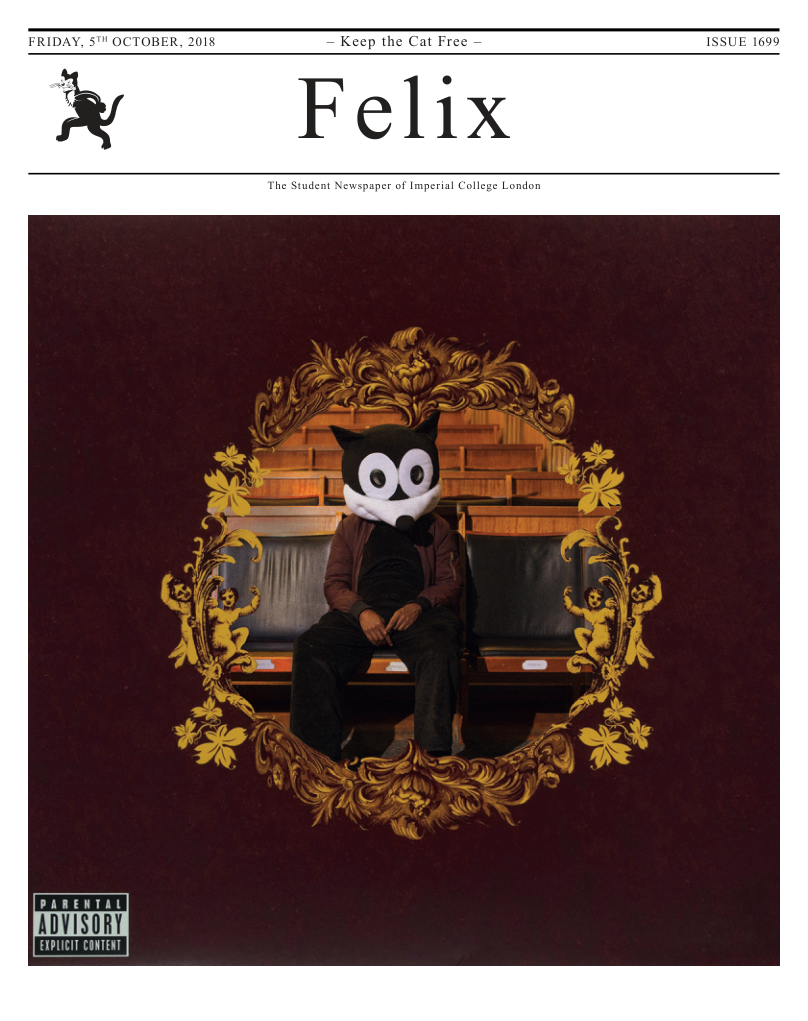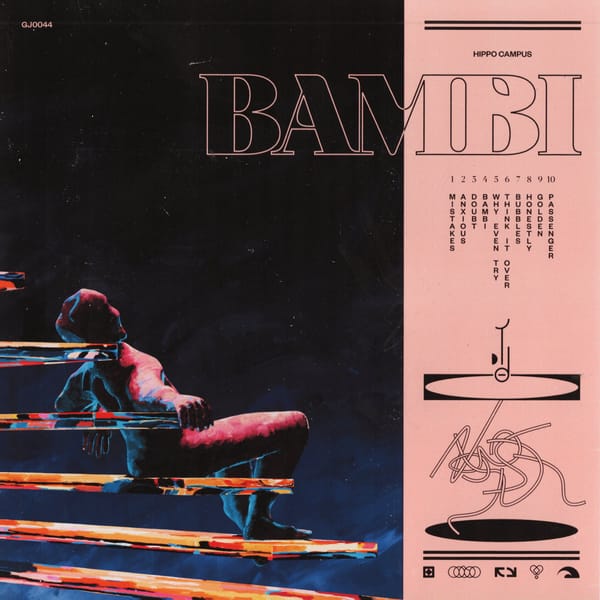With a new Chance the Rapper project supposedly on the way, let us revisit his iconic Acid Rap mixtape

It’s simultaneously becoming increasingly easy and difficult to ignore Kanye West. Apparently, he’s been “working on” a new Chance the Rapper album. What that means or whether it even matters (see the substandard Ye or elusive Yahndi) is to be seen. Still, let’s take this as an excuse to revisit Chance’s magnum opus.
In 2016, we witnessed Chance the Rapper’s spiritual rebirth as “lil Chano from 79th” on the prophetic ‘Ultralight Beam’; a moment that would formally introduce a more sober, sweet as Sunday Candy, family man of a gospel-rapper-Chano, who the mainstream would come to adore following the release of his debut album Colouring Book the same year. However, before that, there was Chance the daydreamer stoner, still wide-eyed and ingenuous off the success of his debut mixtape 10 Day inspired by his ten-day suspension from high school for being caught smoking weed. That mixtape would only hint at the full potential of Chance’s artistry that we would witness the next year on Acid Rap.
Acid Rap is charismatic, energetic and hopeful but self-aware in a somewhat disarming way. Indeed, you wouldn’t have hated the project for coming off a little naïve. It would’ve been a small price to pay for the witty wordplay and infectious flows that Chance delivers, and the way it is wrapped in animated and often undeniably playful production. Nevertheless, as well as Chance gets your head bobbing during his highs, he makes a point of walking us through the nuance and hollowness of his low moments with honesty and precision. Of course, ‘Paranoid’, ‘Lost’ and ‘Acid Rain’ are tracks that illustrate this clearly, each a delicate, floating and often intoxicating, incense-scented meditation on internal and external demons. Chance doesn’t shy away from coating the seemingly upbeat and lively moments with dollops of melancholic juxtaposition too. Indeed, in this way Chance realises his wider vision for this mixtape – his project embodies the off kilter and restless spirit of a routine drug user. The lows are bad, but the highs are also tinted a sunset-purple. And he’s hopeful and he’s self-aware but still, you wonder whether that’s a mark of him applying himself or more a result of viewing his life from the vantage point of drug-induced dissociation.
The first track, ‘Good Ass Intro’, introduces this mind state with a harmonically sung interpolation of a Kanye deep cut over theatrical keys: “Even better than I was the last time/ I’m good”. Having come to know the mixtape well, this opening chorus strikes me as something akin to someone forcing themselves to have a good trip, trying desperately to ignore and thus cast away the anxiety in their gut. Chance’s opening line is a tent peg that he attaches to the mixtape’s title lest we forget the core of his disposition despite all his good humour to follow: “Rap just make me anxious, and acid made me crazy”. The song continues to grow into a powerful, layered ballad with a charged beat as more instruments are added, featuring sung vocals weaving around the verses and coming to a climax on the passionate outro. Chance gets flashy with his flow while rapping about his carefree living and misplaced pride. He continues to ride this high on the next track, ‘Pusha Man’ – ignorant and proud, he claims to be a “Pimp slappin’, toe taggin’” pusha man. An intentional metaphor, the song ‘Paranoid’ is hidden within this track after some silence. Gluey synth notes and a shuffling drum immediately cast a shadow on everything and take us a in a completely different direction. We’re taken to Chance’s gloomy, crime-filled neighbourhood in Chicago where he feels “Trapped in the middle of the map”, his cry at the end of his first verse articulating the frustration of growing up in such an environment. Chance witnessed his best friend Rodney’s murder at 18. He raps on this song with an insight and a raw emotion only someone who’s been through something like that could. Each verse gets more poignant and vulnerable. Having set the scene in the first, he talks about a hopeless cycle of murder in the second, inevitable when “…it’s easier to find a gun/ Than it is to find a fucking parking spot”. Heading into verse three, he acknowledges the climate of fear and paranoia surrounding him and implores the listener to do the same for the sake of empathy. Perhaps knowing this won’t ultimately change things, he then recommends saying goodbye to loved ones before it’s summer and praying for a longer spring because, as he tragically muses, “everybody’s dying in the summer”.
‘Cocoa Butter Kisses’ is one of those songs which is a product of stars aligning. Clearly, everyone who played a hand in its creation had a strong understanding of what it means to grow inclined to youthful vices and hence sacrifice the innocence your mum once loved you for – the central theme of the song. From Vic Mensa and Chance writing their verses while on shrooms, to the beat being produced after the vocals were recorded over an alternative beat, to somehow landing a Twista feature, the song is testament to what an atypical project this is both in vision and creation. We are drawn in by a gospel organ but before long, its divine connotation is juxtaposed and then buried by dirty, bouncing, New-York-style drums that spells corrupted exuberant. All the while, playful synth embellishments and soothing, atmospheric wails accentuate the bars, a contracting-relaxing piano chord progression gluing it all together. Chance paints us his delinquent childhood with a lexicon of references, Vic acknowledges the stupid pride to be found in intoxication (“Got me feeling like Lauryn Hill”), Twista scorches the track with a typical confident, fast flow, whilst lending veteran wisdom to the topic at hand and managing to rhyme “Higgs Boson” and “Voltron”. Following ‘Juice’, the project’s simple yet addictive single with a call and response hook, we get the bitter sweet ‘Lost’. The first of many exceptional collaborations between Chano and Noname, the song is an ode to troubled relationships stuck in a cycle of drugs, lust, depression and debilitating dependence. ‘Everybody’s Something’ is a track that sees Chance and Saba reflecting on various topics – morality, religion, drug abuse, depression, police brutality, blackness, luck and time – all through a disillusioned Chicago-born lens. Though this introspection can leave one feeling hollow, Chance reminds us not to lose our self-worth: “Everybody’s somebody’s everything”. Following this sentiment, Chance raps a list of similes articulating how love is, in his opinion, the best possible thing in the sincere and heart-warming interlude track ‘That’s Love’.

The next three tracks are more light-hearted, each featuring a non-Chicagoan rapper who is now a household name (Childish Gambino, Action Bronson and Ab-Soul). The best of these is ‘Favourite Song’, a hilariously silly self-referential track about why it should be your favourite song. Chance starts the song with some of the cleverest and catchiest lines of the project, packed with alliteration, assonance and an astounding rhyme scheme: “Chance, acid rapper, soccer, hacky sacker/ Cocky khaki jacket jacker/ Slap-happy faggot slapper…”. He then glides into a carefree, half-sung, infectious flow, repeating this formula in his second verse. Gambino adds a laid-back verse with hilariously relatable commentary on the reception of a hit song; from a friend wanting credit for putting you on, to jamming to it “in Abercrombie when your work is finished”.
‘Acid Rain’ is arguably the most essential track of the project, the well-earned climax Chance had been working towards this whole time. The beat is comprised of a bassy snare, desolate strings and eerie moans. We hear Chance’s internal monologue as he trips acid in the rain. He approached his thoughts with maturity, and though he acknowledges that he will always feel unsettled, nostalgic or anxious on certain issues, he reached enough conclusions within the three and half minutes to be a “new man…baptized…holy…sanctified…born again”. Amongst conclusions on the troubles and artificialness of wealth, and on taking active steps to replace gang violence with support for Chicago’s youth, Chance spits a telling line that introspects on his drug use: “I trip to make the fall shorter.” He trips to soften the blow of his failures, he trips to prevent himself from falling too deep into his pit of demons, he trips to make his Autumn shorter; perhaps an indication of boredom, but more likely an indication of the season’s bleakness following summers of high crime rates that claim the lives of his friends (Rodney died in September). Nevertheless, on the last two tracks of the album, each beautifully produced, Chance reassures us that he’s still the ebullient kid we met at the start of the mixtape and that, despite any misfortune or evils, he can still reminisce about his happiest moment and know, sincerely, that “everything’s good”.
Although Acid Rap would go on to become what propelled Chance the Rapper into stardom, it is clear that its purpose was more than that. Acid Rap was for Chicago and for the youth. It was to uplift the disillusioned whilst telling them they’re not alone. It was for stoners, church goers, and lost friends like Rodney. And it was for hip hop.
-4.5 stars





